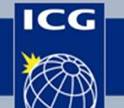In a Hut in Haiti, Waiting for Spirits




 Plumpynut revolutionized the treatment of acutely malnourished children. In Haiti, Partners in Health (PIH) has produced a local variant, Nourimamba, since 2007. The Abbot pharmaceutical company is working closely with PIH to further improve Nourimamba and to expand production. The opening of a factory is scheduled for end 2012. This is good news for malnourished children, the health care providers who treat them, and the farmers who produce the ingredients for Nourimamba. An article by New York Times writer Duff Wilson on the PIH/Abbot partnership follows.
Plumpynut revolutionized the treatment of acutely malnourished children. In Haiti, Partners in Health (PIH) has produced a local variant, Nourimamba, since 2007. The Abbot pharmaceutical company is working closely with PIH to further improve Nourimamba and to expand production. The opening of a factory is scheduled for end 2012. This is good news for malnourished children, the health care providers who treat them, and the farmers who produce the ingredients for Nourimamba. An article by New York Times writer Duff Wilson on the PIH/Abbot partnership follows.


 Like Haitians themselves, coffee has African roots. Throughout much of its colonial and post-colonial history, coffee was a major export and source of livelihoods. However, mismanagement, deforestation, natural disasters, political instability, and embargos have resulted in a dramatic decrease Haitian coffee exports. Yet, Haitian coffee is good - unusually good. Can Haiti revive and expand its coffee industry? Just Haiti and Singing Rooster are two organizations that believe it can. Buying from either of these organizations is a great way to support both your coffee habit and Haitian farmers.
Like Haitians themselves, coffee has African roots. Throughout much of its colonial and post-colonial history, coffee was a major export and source of livelihoods. However, mismanagement, deforestation, natural disasters, political instability, and embargos have resulted in a dramatic decrease Haitian coffee exports. Yet, Haitian coffee is good - unusually good. Can Haiti revive and expand its coffee industry? Just Haiti and Singing Rooster are two organizations that believe it can. Buying from either of these organizations is a great way to support both your coffee habit and Haitian farmers.
 World Monuments Fund (WMF) is an independent organization that has been dedicated to saving the world’s architectural and cultural heritage sites since 1965. WMF accomplishes this through advocacy, education, capacity building, and disaster response. Each year, WMF releases a Watch List of architectural sites that are at risk. Three Haitian architectural sites were listed on the 2012 Watch List: (1) The San Souci Palace in Milot; (2) the Gingerbread Houses of Port au Prince; and (3) the Jacmel Historic District. Read about these sites and how to get involved in their protection below.
World Monuments Fund (WMF) is an independent organization that has been dedicated to saving the world’s architectural and cultural heritage sites since 1965. WMF accomplishes this through advocacy, education, capacity building, and disaster response. Each year, WMF releases a Watch List of architectural sites that are at risk. Three Haitian architectural sites were listed on the 2012 Watch List: (1) The San Souci Palace in Milot; (2) the Gingerbread Houses of Port au Prince; and (3) the Jacmel Historic District. Read about these sites and how to get involved in their protection below.
 The World Health Organization (WHO) and the Haitian and Canadian governments launched a maternal and child health initiative today, a continuation and expansion of two existing programs. Even prior to the earthquake, Haiti was a difficult place to be a mother or a young child. Through this initiative, mothers and children under five receive basic care without cost. The intent is to progressively scale up this initiative to 90 health care facilities throughout the country. The full press release follows.
The World Health Organization (WHO) and the Haitian and Canadian governments launched a maternal and child health initiative today, a continuation and expansion of two existing programs. Even prior to the earthquake, Haiti was a difficult place to be a mother or a young child. Through this initiative, mothers and children under five receive basic care without cost. The intent is to progressively scale up this initiative to 90 health care facilities throughout the country. The full press release follows.
 The International Crisis Group has released a report on the importance of police reforms for security in Haiti, meaning freedom from intimidation and abuse, conflict and violence, and crime and impunity. The release comes during a time in which Brazil and other partner nations are increasingly contemplating a gradual drawdown of MINUSTAH staffing. This provides the Haitian government and its partners a window of opportunity to continue reforms that will make the Haitian National Police more effective and accountable. The full report is attached and a summary is copied below.
The International Crisis Group has released a report on the importance of police reforms for security in Haiti, meaning freedom from intimidation and abuse, conflict and violence, and crime and impunity. The release comes during a time in which Brazil and other partner nations are increasingly contemplating a gradual drawdown of MINUSTAH staffing. This provides the Haitian government and its partners a window of opportunity to continue reforms that will make the Haitian National Police more effective and accountable. The full report is attached and a summary is copied below.